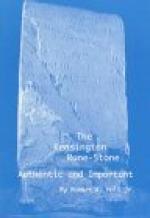|
This section contains 10,290 words (approx. 35 pages at 300 words per page) |

|
SOURCE: “Anti-Romantic Romanticism: Edward Sapir and the Critique of American Individualism,” in Anthropology Quarterly, Vol. 62, No. 1, January, 1989, pp. 1-13.
In the following essay, Handler explores Sapir's criticism of romanticism and his equation of romanticism with what he considered the excessive and egotistical elements of American individualism.
In the memorable final paragraph of “The grammarian and his language,” Edward Sapir proclaimed his allegiance, and the allegiance of linguistics, the discipline for which he was speaking, to what he called the “classical spirit.” Drawing on a conventional dichotomy, Sapir contrasted the classical “freedom in restraint” of disciplines such as linguistics, mathematics, and music to the “romanticism,” with its “frenetic desire,” that he found “rampant in America today” (1924a: 159). Sapir's defense of linguistics was published in the first volume of H. L. Mencken's American Mercury, certainly a forum for what, even in Sapir's time, was called “cultural criticism.”1 There Sapir not...
|
This section contains 10,290 words (approx. 35 pages at 300 words per page) |

|


